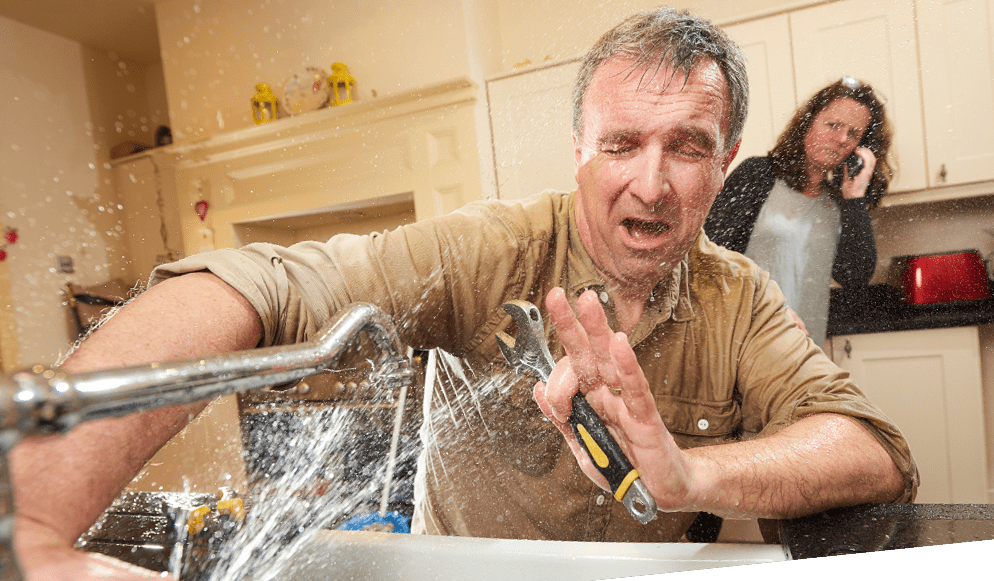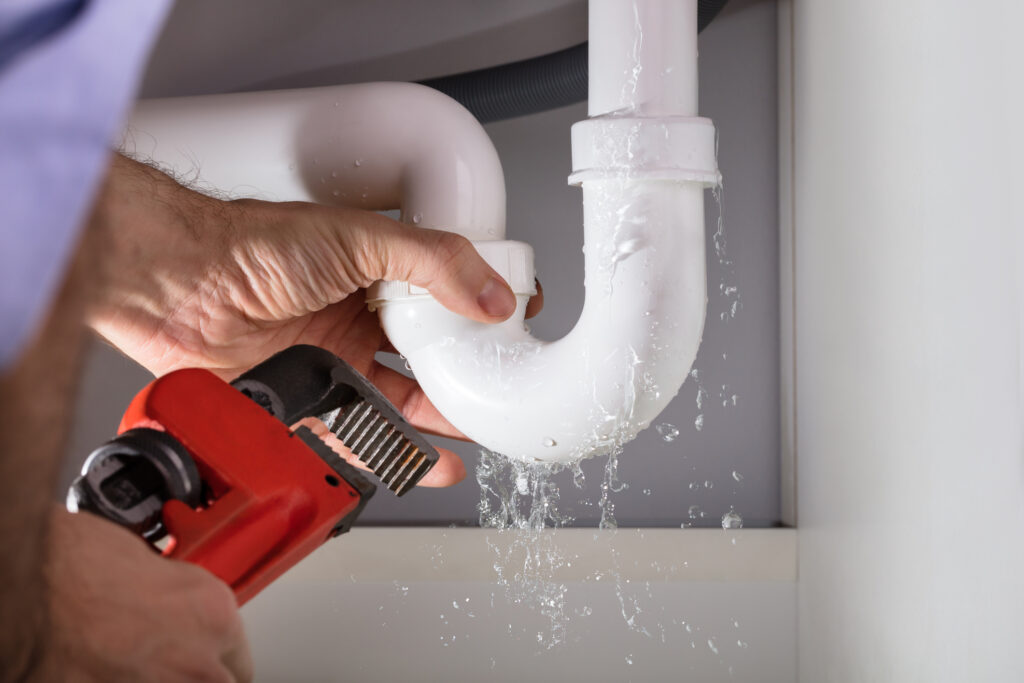Immediate Pipe Repair Solutions for Urgent Issues Until Assistance Arrives
Immediate Pipe Repair Solutions for Urgent Issues Until Assistance Arrives
Blog Article
What're your thoughts concerning Expert Tips for Emergency Plumbing Repairs?

Plumbing emergency situations can strike any time, triggering tension and possible damages to your home. Whether it's a burst pipe, a clogged up drainpipe, or a leaking faucet, recognizing just how to handle the situation until a specialist plumbing technician shows up can save you from more issues. This short article provides crucial emergency situation plumbing pointers to assist you reduce damages and gain back control during a pipes dilemma.
Turn Off the Water Supply
The primary step in any type of pipes emergency situation is to shut off the water. For localized issues, such as a dripping faucet or commode, shut off the shutoff near the component. In the case of a significant leak or ruptured pipe, situate your home's primary water shut-off shutoff and turn it off immediately. Recognizing the location of these shutoffs beforehand can conserve important time throughout an emergency.
Shut Off Your Hot Water Heater
In certain emergency situations, such as a burst pipeline, it's wise to turn off your water heater. This stops overheating or damages to the device when water stops streaming. Switch off the power supply to the water heater (electrical or gas) and let it cool off to avoid possible hazards.
Briefly Quit a Burst Pipeline
A burst pipe can bring about significant water damages in minutes. To alleviate the concern:
Call a professional plumbing technician quickly to deal with the issue completely.
Have an Emergency Plumbing Set
Prepare a standard plumbing emergency set to take care of minor problems successfully. Your package should include:
Having these tools handy can make a substantial distinction in your ability to manage emergencies.
Unclog Drains Pipes Securely.
A clogged up drainpipe can be a frustrating and untidy concern. Below's how to tackle it:.
If these approaches do not function, stay clear of making use of extreme pressure, as it may intensify the obstruction.
Handle Overflowing Toilets.
An overflowing toilet can cause immediate chaos. Here's what you need to do:.
Address Tiny Leakages with Short-term Fixes.
Tiny leakages can rapidly become substantial issues if left unattended. Use these short-lived repairs until specialist aid shows up:.
While these repairs aren't permanent, they can aid reduce water loss and damages.
Deal With Frozen Pipes Very Carefully.
In colder environments, icy pipelines are a typical emergency. If you believe a frozen pipeline:.
Know When to Call a Professional.
While quick fixes can assist momentarily, specific pipes issues need prompt expert focus. Call a plumbing if:.
Quickly speaking to a professional guarantees the concern is resolved properly and protects against further issues.
Protect against Further Damage.
Taking fast action to lessen damages can conserve you time and money in the future. Below's how:.
Verdict.
Pipes emergencies can be overwhelming, but with the best understanding and devices, you can handle the scenario properly till aid gets here. By turning off the water supply, addressing small leaks, and using temporary fixes, you can minimize damage and keep your home safe. Remember, these tips are temporary solutions; constantly seek advice from a certified plumbing to deal with the source of the problem. Preparation and quick reasoning are your ideal allies in any kind of pipes emergency situation.
8 Helpful Tips for Managing Plumbing Emergencies at Home
If your plumbing system hasn’t failed once, wait for it because almost everyone has a story to tell. Sometimes, it could be simple emergencies such as a leaking pipe, a blocked cistern, or even a big burst pipe. In situations like this, you need to have some handy tips to save you some money and from possible damages.
Take care of minor issues early.
Sometimes, you could have avoided an emergency by taking proactive measures while it was still early. Some major plumbing emergencies can be a result of an ignored minor issue. We recommend that you have items like plumbing tapes and other related items. A plumbing tape can allow you to manage minor leaks before the plumber arrives.
Cut off the water supply.
This tip is essential in almost any type of leakage problem. For problems like minor leakages in the toilet or kitchen, turn off the supply that takes water to the affected pipes. If the leakage is a major pipe, you must shut off the supply valve to the entire building. This will help you avoid flooding your home and neighbors if you share a flat.
Know your plumbing system
Folks typically move into a new apartment without understanding the water supply around the building. This can prove disastrous if a water emergency arises and the plumber is far away. The previous tip will prove useless if you don’t practice this one. More importantly, know where your water shut-off valve is located – you’ll need that knowledge to prevent potential home floods.
Have some common handy tools
There are lots of plumbing emergencies that you can handle without hiring a plumber. That’s why you must keep some tools available always. Some tools that you can use to fix simple plumbing emergencies easily include plumbing tapes, screwdrivers, thread seal tapes, plungers, pliers, tape measures, and rubber gloves.
Insulate your pipes from cold
You’ll save yourself from many plumbing expenses if you protect your water pipes from the cold. This is because of the harmful effects that cold weather can have on your pipes. During winter, your pipes can burst from being overly expected to freezing temperatures. So, make sure insulators are there to keep the pipes working correctly.
Avoid practices that will clog your toilet.
Many people indulge in practices that can damage the plumbing system of the entire building. One of these is when they use their toilet to dispose-off garbage. They flush all kinds of things, such as paper towels, bandages, hairs, female sanitary products, etc., down the toilet. This will block your toilet in the long run, incurring unnecessary expenditures. Dump such waste in the trash instead.
Check your dials regularly.
Sometimes, there could be leakages in your home without noticing them in time. So, constantly monitor your water meter dial. If the dial is reading when there is nobody using water, this is an indicator that there is leaking. Check for leaks immediately. Call a plumber as soon as possible if you can’t find any.
https://www.constructionplacements.com/8-helpful-tips-for-managing-plumbing-emergencies-at-home/

Do you really like more info about Plumbing Emergencies: Tips on What To Do Before? Try leaving feedback further down. We'd be glad to hear your insights about this posting. We hope that you come back again soon. Are you aware of anybody else who is interested by the topic? Why not promote it. Thanks for your time. Come back soon.
Call Report this page